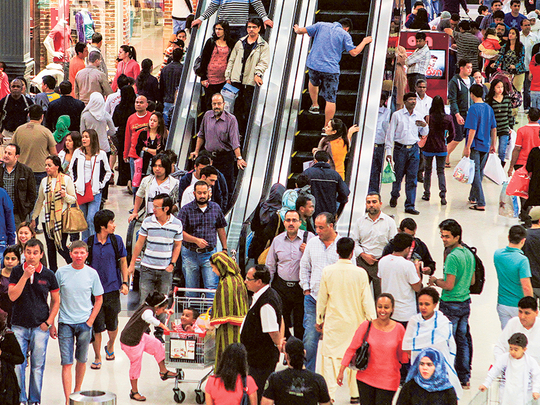
Dubai: After enduring a less than impressive sales performance in the fourth quarter of last year, many of Dubai’s retailers are starting to feel the extra burden imposed on them by higher rentals in Dubai’s malls.
At some of the leading shopping destinations, rental increases have shot up by an average 25-30 per cent on lease renewals, pushing rentals well above the Dh1,000-Dh1,100 a square foot range.
Some of the retailers are particularly cut up over new terms that have been added to their lease renewals.
“With each renewal term, the pressure on a retailer gets magnified — some malls are stipulating that the retailer should meet a higher percentage on sales numbers if the contract is not to be terminated,” said one retailer who operates mid-value apparel outlets at some of the leading malls and who decided to shut down a couple of locations. “This hikes are done arbitrarily and leaves hardly any scope for the retailer to voice his concerns.
“It’s a case of pay up or head for the exit. The authorities need to intervene in the retail marketplace as they had done in residential. Rental hikes on the part of malls should be justified.”
There is another clause brought in by some malls that is giving retailers a lot of heartburn — this states that a mall management has the right to ask a tenant to vacate the premises if the outlet fails to meet set targets in sales growth over consecutive months.
Retailers complain that mall managements are raising the ante even as the sector sees a marked dip in volume of business conducted over the last three to five months.
“Through the fourth quarter of 2014, retail sector sales in Dubai could have dipped by 10 to 25 per cent,” said Andrew Williamson, Head of Retail at JLL MENA, the consultancy. “All the major malls had substantial rental increases last year — but it’s already getting clear that at certain rate levels it becomes impossible for retailers to function.
“In the short-term, higher rentals are definitely a concern for the retail market here.”
A high rental regime in a soft market hits the small and mid-sized retailers disproportionately. Unlike the big retail groups, they do not have the spread of operations — such as being anchor tenants — or multiple lines to prop up their sales numbers. And in a tight market, shoppers tend to cut down on their discretionary spending habits, which is where a good majority of the smaller players (including those operating in the F & B space) function.
Shopping mall owners declined to talk on the record about 2015 rental trends and whether they had brought in new terms and conditions in their lease agreements.
But their point was that new retail space at the leading malls in Dubai is going for a premium because of the sheer demand that is there for any expansion or new stock creation.
To back their claims, they point to the long waiting list of aspirants waiting to sign up for space. These retailers if they do find space have to get in at the higher rentals that are being quoted. “There were several lease renewals that took place three or five years ago when these malls had just opened — there is no way those rental terms will apply now,” said an official at a mall developer.
But retailers are far from being mollified by such statements. “There is already immense pressure from the brand principal to get into one of the prestige malls and they are not satisfied by openings in secondary locations,” said a retailer.
“For my latest renewal, I got hit with a 20+7+7 per cent increase over the next three years, and that’s excessive.” (This work out to a 20 per cent increase in rental in the first year, and 7 per cent each for the succeeding two years. Most lease terms at malls are set to three-year contracts.)
According to Ajai Dayal, CEO of the retail advisory Tridayle Consult, “The reason is that the (super-) regional malls are sucking in traffic from all the other locations, and therefore they feel that they can ask — and get — whatever they wish. More so, since they all have long waiting lists of people just wanting to get in somehow. As for now, it does not seem that this situation is going to change.”












